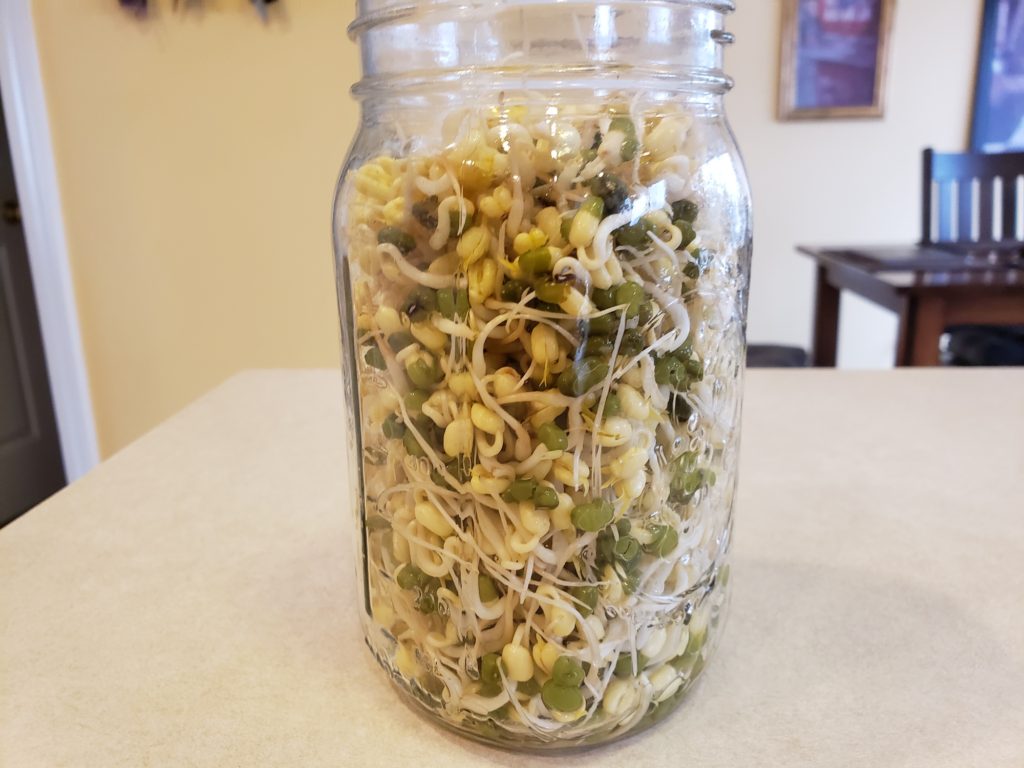If you’re worried about having access to fresh greens during a prolonged disaster – like if you’re self-quarantining – sprouting is a very easy way to grow them yourself for pennies.
What’s more, they’re high in protein and vitamins, and good nutrition in a disaster is vital.
All you need is clean water, sprouting seeds like mung beans or lentils, a Mason jar and a cover, such as cheesecloth and a rubber band. There are health food companies that sell sprouting trays, but if you’re a cheapskate like me, a Mason jar works just fine.

I recently sprouted mung beans – otherwise known as the bean sprouts you eat in Chinese dishes – which you can find in the Asian foods section of any supermarket.
Here’s how you do it:
- Portion out three teaspoons of seeds onto a clean surface and pick out any broken or discolored ones.
- Pour the seeds into your jar or sprouting tray and cover them liberally with water.

- Cover the jar or tray and leave it in a dark place, like a kitchen cabinet, to soak overnight. I use cheesecloth, but you can use a Mason lid with holes in it – the seeds have to be able to breathe.
- Drain the jar the following morning, rinse the seeds and return them to the dark, rinsing them twice daily and draining them—don’t leave standing water in the bottom.
Two days in, the sprouting starts in earnest …

… and three or four days later, you have a jar full of sprouts bursting with important nutrients. And if you look at the yield from a few teaspoons of mung beans or lentils, you can get a whole lot of food for between $1 and $2.
You can eat them raw, which is what we do in the Craver household, or add them to soups, stews and other dishes.

The downside is that sprouts don’t keep long, so be sure to eat them within a day or two. The upside is, if you have three or four Mason jars or stackable sprouting trays, you can have a steady supply. And better yet, seeds and legumes keep for many years if stored properly. The mung beans I sprouted for this article were sitting in a bag in my cabinet for two years. I’ll talk in a future post about how to store dry grains.
What You Can Sprout
I singled out lentils and mung beans because they’re easy to find in the supermarket. There are other seeds suitable for sprouting that you can find at health food stores, such as alfalfa, wheat, hull-less oats, clover,
Don’t sprout tomato or potato seeds – their sprouts are poisonous. Also, don’t sprout seeds from the garden packets that you buy at the hardware store, or any seeds sold for agricultural use, because they often are treated with fungicide and other chemicals.
If you plop down $10, you can walk out of a discount store with enough lentils or mung beans to keep you and your family hooked up with fresh greens for a long time. If you’re looking to learn preparedness tasks, this is an easy one to start, especially to get young children interested.
